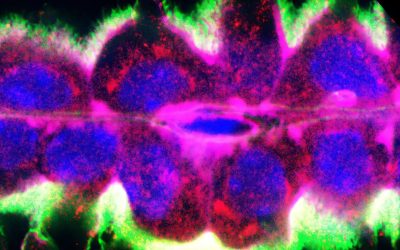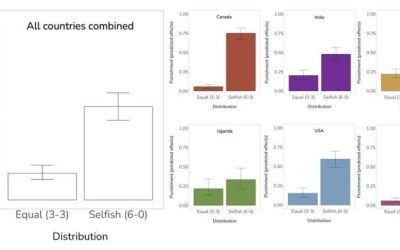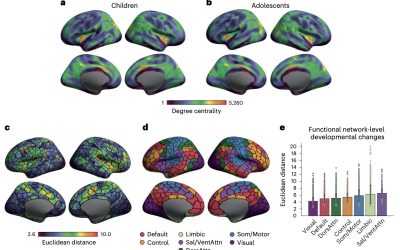The human brain, like the brain of other mammals, is known to start developing before birth, via a coordinated sequence of molecular and cellular processes. Neuroscience studies have found that the choroid plexus (ChP), a specialized brain structure that regulates the...
Pediatrics
One-year-old infants already display compositional abilities, study finds
To understand complex objects, humans are known to mentally transform them and represent them as a combination of simpler elements. This ability, known as compositionality, was so far assumed to require fluency in language, thus emerging in childhood after humans have...
Six country-study finds children consistently take a stance against unfair sharing
Studies exploring the extent to which people are prone to "punishing" the selfish behavior of others can offer insight into their societal values, such as the importance they attribute to equality and fairness norms. Past findings suggest that there is great variation...
Quality of parent-child relationships predicts adulthood well-being, 21-country finds
The link between early life experiences and mental health has been widely explored by psychology researchers. One key aspect of human early life experiences is the relationship that people develop with their parental figures, which is at the center of attachment...
Exploring how stressful life events affect internalizing and externalizing symptoms of psychopathology in childhood
Past psychology studies have consistently highlighted the link between adverse and traumatic life events and mental health problems. Better understanding the intricate relationship between stressful life events and the emergence of psychopathology in childhood could...
Meta-analysis of past research unveils distinct patterns in infant looking behavior
Human infants have limited motor capabilities, which prevents them from accessing and exploring all parts of their surrounding environment, and also makes them difficult research participants to study. However, infants do learn about and explore the world by looking;...
Study suggests that attention networks support changes in cortical organization and cognition during childhood
Past neuroscience studies have consistently highlighted the profound changes that the human brain undergoes throughout childhood and adolescence. These efforts have uncovered various stages of development, during which the brain's organization evolves to support...
Global research collaboration maps brain development in infancy and early childhood
The brains of infants and young children are in continuous and rapid development. These changes are known to go hand in hand with early life learning and the fine-tuning of mental abilities over time.
Children prioritize what they hear over what they see when gauging emotional aspects of their experience
The Colavita visual dominance effect is a psychological observation named after Francis B. Colavita, the psychologist who first gathered evidence of its existence in 1974. Colavita observed that when human adults are presented with visual stimuli and other sensory...









